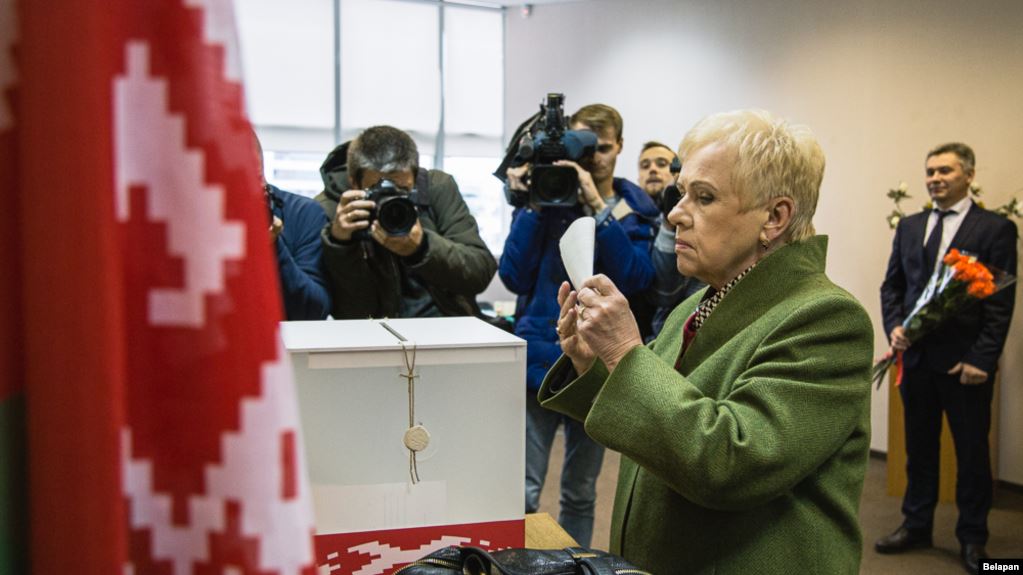2019 Review: A significant setback in the election administration and modest economic transformations
 The situation got worse
The situation got worse

The Belarusian authorities’ policy in 2019 rested on the “change without change” principle. Such an approach has led to growth in social stratification, alienation of the population from the state, a slowdown in business activity, and partial deterioration in governance, altogether weakening the Belarusian state.
Throughout the year, authorities delved into the possibility of changing the constitution and became less open to an alternative. According to the results of the elections, the new parliament is sterile in terms of having any MPs representing the opposition or the third sector. The government repeatedly manifested its readiness to embark on economic transformations, while the president further pursued conservative rhetoric. Law enforcers widely practised heavy fines, preventive detentions, and administrative arrests against civic activists and the opposition, especially during the 2nd European Games and after the parliamentary elections.
The Belarusian authorities enforced financial discrimination against the opposition though introducing fees for holding authorized public events. Simultaneously, they made concessions to some organized protest groups, which further depoliticized the population. Speaking about ensuring Belarus’ sovereignty in early 2019, President Lukashenka had set the tone of the parliamentary campaign. Amid the lack of public funds to ensure pay rises for voters, pro-government parliamentary candidates primarily campaigned for Belarus’ sovereignty. In addition, the president announced a possible political reform allegedly aimed at strengthening the government and parliament.
Administered by the president, the parliamentary elections demonstrated a setback in all directions. The Central Electoral Commission (the CEC) was the major newsmaker in the state media during the election campaign. The authorities disabled public control over the work of commissions, tightened censorship, enhanced restrictions and screening of candidates. MPs representing pro-government political parties increased in number from 15 to 21 MPs of 110, as compared with the previous convocation; and alternative parliamentary candidates did not win a single seat. Some political elite members had put pressure on the president in terms of strengthening political parties but to no avail. The president appears to be wary of formalized interest groups in parliament or the government system, so the presidential administration further consistently blocked feedback channels between the state bodies and the population.
The economic authorities neither improved the public sector’s performance nor reduced its burden on public funds. However, the lobbying efforts aimed at improving the business environment, partially succeeded, albeit were disavowed by arbitrary local practices and punitive policies pursued by law enforcers and tax authorities.
Social stratification deepened both, vertically (the poverty gap), and horizontally (welfare standards by region, including in healthcare). Amid dwindling public funds local authorities were unable to live up to the president’s expectations, manifesting governance’s vulnerability. The president attempted to lower the appetites of government executives through the anti-corruption campaign (e.g. the “case of doctors”).
Authorities continued to enforce some controversial initiatives (e.g. the law on deferrals from the army service), which caused discontent not only in society but also among the ruling elite.
Forecast for 2020
- Authorities are likely to further pursue gradual socio-economic transformations, primarily expanding opportunities for large and loyal business
- The support for the public sector is likely to reduce due to the lack of resources
- Given the upcoming presidential elections, law enforcers are likely to step up repression against opposition activists
Author: Zmicier Kuchlej
Subscribe to our newsletter




Situation in Belarus
Constitutional referendum: main consequences


 Video
Video
How to count the political prisoners: are the new criteria needed?


 Video
Video
Paternalism In Decline, Belarusian Euroscepticism, And The Influence Of Russia


 Video
Video












